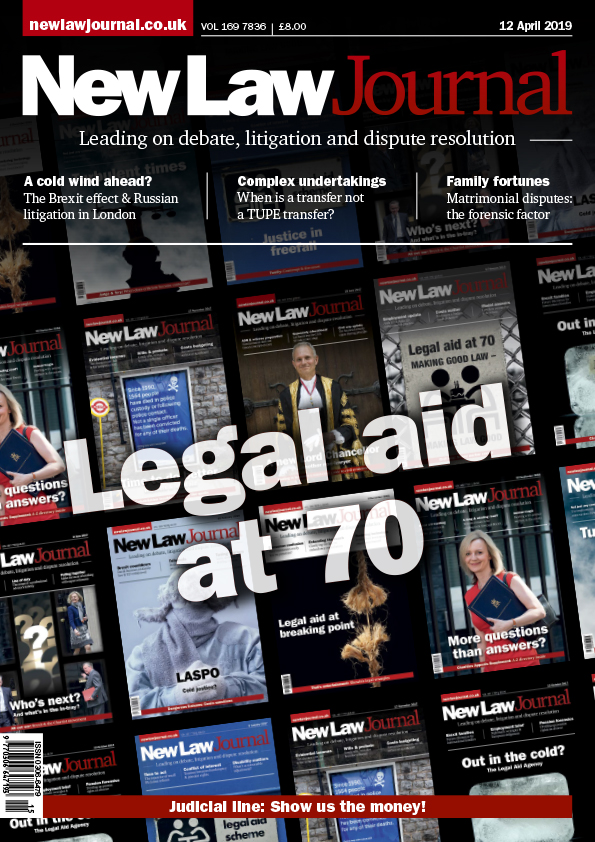
The MoJ is travelling in the right direction but is it too little too late, asks Steve Hynes
John McMullen navigates the Employment Rights Act to find a solution to complex transfers
Rakesh Kapila examines the forensic accountant’s changing role in matrimonial disputes
In his final update, Simon Parsons considers the development of proportionality as a ground for judicial review
This week: unlock the interlock—fast; who posts the claim form; costs only interim cash; divorce costs assessments
Simon Davenport QC & Helen Pugh consider how the limbo land of Brexit could affect Russian/CIS litigation in London
Last year’s heatwave has given insurers the shivers: Veronica Cowan explains why
The legal advice sector has long since suffered from a difficult relationship with local authority support, says Jon Robins
MOVERS & SHAKERS

NLJ Career Profile: Ken Fowlie, Stowe Family Law
Ken Fowlie, chairman of Stowe Family Law, reflects on more than 30 years in legal services after ‘falling into law’

Gardner Leader—Michelle Morgan & Catherine Morris
Regional law firm expands employment team with partner and senior associate hires

Freeths—Carly Harwood & Tom Newton
Nottinghamtrusts, estates and tax team welcomes two senior associates







